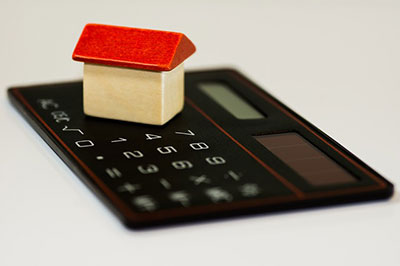
Your guide to ground rent charges
 If you’ve been looking into buying a property, especially a flat or an apartment, you may feel a little perplexed about the idea of having to pay a form of rent.
If you’ve been looking into buying a property, especially a flat or an apartment, you may feel a little perplexed about the idea of having to pay a form of rent.
Service charges, also called maintenance charges or a maintenance fee, are a little easier to understand - if you buy a property in a block of flats or apartments you’ll want communal areas to be kept clean and well maintained, perhaps a staffed concierge service and for things around the complex to be safe and all in good working order. A required maintenance charge for these services is easier to accept.
But ground rent? If you are buying a property, why do you need to pay ground rent?
First, we need to understand what ground rent is.
What is ground rent?
In simple terms, ground rent is a fee that is paid by leasehold property owners (leaseholders) to the owner of the land that the property is built on so that they can live on their land.
The owner of the land is typically referred to as the ‘landlord’ or the ‘freeholder’.
This is the person or company who owns the actual lease for the land.
How much ground rent is usually charged?
The amount of ground rent that you need to pay will be outlined in your lease and the amount can vary depending on many different factors, but leaseholders can generally expect it to be somewhere in the region of £300 - £700 per year.
The ground rent fee is usually paid quarterly, half-yearly or annually. The payment schedule will depend on the specific arrangements that are in place with the owner of the land and is something else that will be found detailed in the lease.
Every party who is named as a leaseholder to the property will be responsible for the ground rent charges, just like a mortgage when each property owner is liable for the mortgage payments - regardless of whether they own the property as tenants in common or as joint tenants.
Check out our top advice for buying a jointly owned property.
Any other responsibilities that leaseholders have with regards to ground rent or any other liabilities will be stated in the lease. It is important that all owners fully understand their responsibilities, so it is always worth asking a qualified solicitor to look over the lease before you complete the purchase of a leasehold property.
Can the ground rent charge be increased?
The ground rent charge can be increased, but this should all be detailed in in the lease so that leaseholders are fully aware. This is another reason for why it’s important for owners to not only read through the terms of the lease themselves but to also instruct the services of a fully qualified solicitor. This will allow you to factor in any likely increases in ground rent while considering if it’s the right property purchase for you.
Many buyers remain unaware of potential hikes in ground rent, so when they come along it is a shock and an extra expense that they hadn’t expected nor budgeted for.
Another reason to be aware of ground rent charges is because mortgage lenders will take the fees into account when calculating homeowner affordability. The last thing a homeowner wants is to be refused a mortgage or the ability to remortgage because of unexpected or unknown ground rent charges and price hikes.
Check out our useful mortgage guide.
Ground rent reviews
It is also possible for the freeholder to request a ground rent review.
During this review, the freeholder will usually contact all leaseholders outlining their proposed plans to increase the ground rent along with details such as how much they believe the increase should be and exactly when the new charges should come into effect.
The leaseholder can agree or disagree to the amounts and/or terms mentioned in the ground rent review.
If the freeholder and leaseholder disagree and fail to reach an alternative arrangement, the case can be passed onto an arbitrator appointed by the Royal Institution of Chartered Surveyors (RICS).
Fixed rate ground rent and escalating ground rent
When looking through the ground rent terms in the lease you’ll come across one of two different types of ground rent - fixed ground rent or escalating ground rent.
Fixed rate ground rent
This is when the ground rent charge is fixed throughout the duration of the lease.
Escalating ground rent
This is when the ground rent charge will increase throughout the duration of the lease.
We appreciate that ground rent charges can be complex and confusing to understand, so we would urge anyone who is unsure about their ground rent situation to seek professional legal advice.
For help finding the perfect property in Cardiff, why not get in touch with our expert sales team here at CPS Homes? Whether it’s a first-time buy, your forever home or an investment property you’re looking to let out, we have all the expertise you’ll need. Contact us by calling 02920 668585, e-mail enquiries@cpshomes.co.uk or pop into one of our three Cardiff branches.
The information contained within this article was correct at the date of publishing and is not guaranteed to remain correct in the present day.


